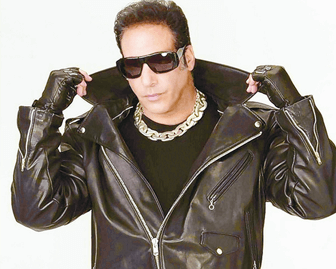Regardless of style, there are two factors that are ABSOLUTE MUSTS in writing comedy: confidence and truthfulness. Confidence is what allows you to explore and find interesting ideas while truthfulness is what keeps you and your comedy grounded in reality.
CONFIDENCE IN WRITING
Confidence is not just limited to the stage. You need to be confident in your writing as well. A lack of confidence makes you second guess everything you write.
Confidence is so important in writing because you simply don’t know whether what you’re writing is going to be funny or not. It’s easy to get disheartened. Lack of confidence is one of the main causes of writer’s block. If you don’t believe what you’re about to write will be funny, you’ll stop dead in your tracks. Nothing will be good enough.
This will put an end to some of your best ideas before they get off the drawing board. Material doesn’t come out perfect the first time. Most of your ideas will not leap off the page and scream “I’m funny.” You have to have confidence that, even if these jokes aren’t funny at first, you can still punch them up until they work.
Confidence also leads to interesting creative choices. You can’t expect to have the audience on the edge of their seat dying to hear more unless you give them something unique and interesting.
You’ll learn how to create these interesting topics in the step-by-step writing guide later on. For now, just understand that boring/timid choices lead to bland material while interesting/confident choices makes the audience interested.
TRUTH IN WRITING
Your writing needs to have some degree of identifiable truth to it. This is similar to the idea of “safety” in comedic conflict (see the lesson on comedic conflict for more). An audience needs to be able to identify with your material, whether it’s observational or experience based. If you’re talking about the intricacies of Swedish law enforcement then nobody’s going to have a clue what you’re talking about. Even if it is funny (and true) nobody can identify with it so nobody’s going to get it. You need to strike a balance between being “Too true to reality” and “Being too far away from reality.” Too close to real life means that there’s nothing really special about what you’re talking about. There’s too much safety, not enough violation. The audience is going to say “Yeah- we know. What about it?”
On the other hand, if you are too far away from reality and you’ll lose touch with your audience. Your audience is going to say “What the hell are you talking about? That NEVER HAPPENS!” This is what leads to “tearing the joke.”
Exaggerations are funny… Over-exaggerations are not.
SUMMARY & TAKE-AWAYS
- Your confidence level while writing will determine if you enjoy a writing session or if you get writer’s block.
- Writing must have some truth to it. Make sure you give the audience something they can believe in the setup or else they will feel like your punchline was fake.

